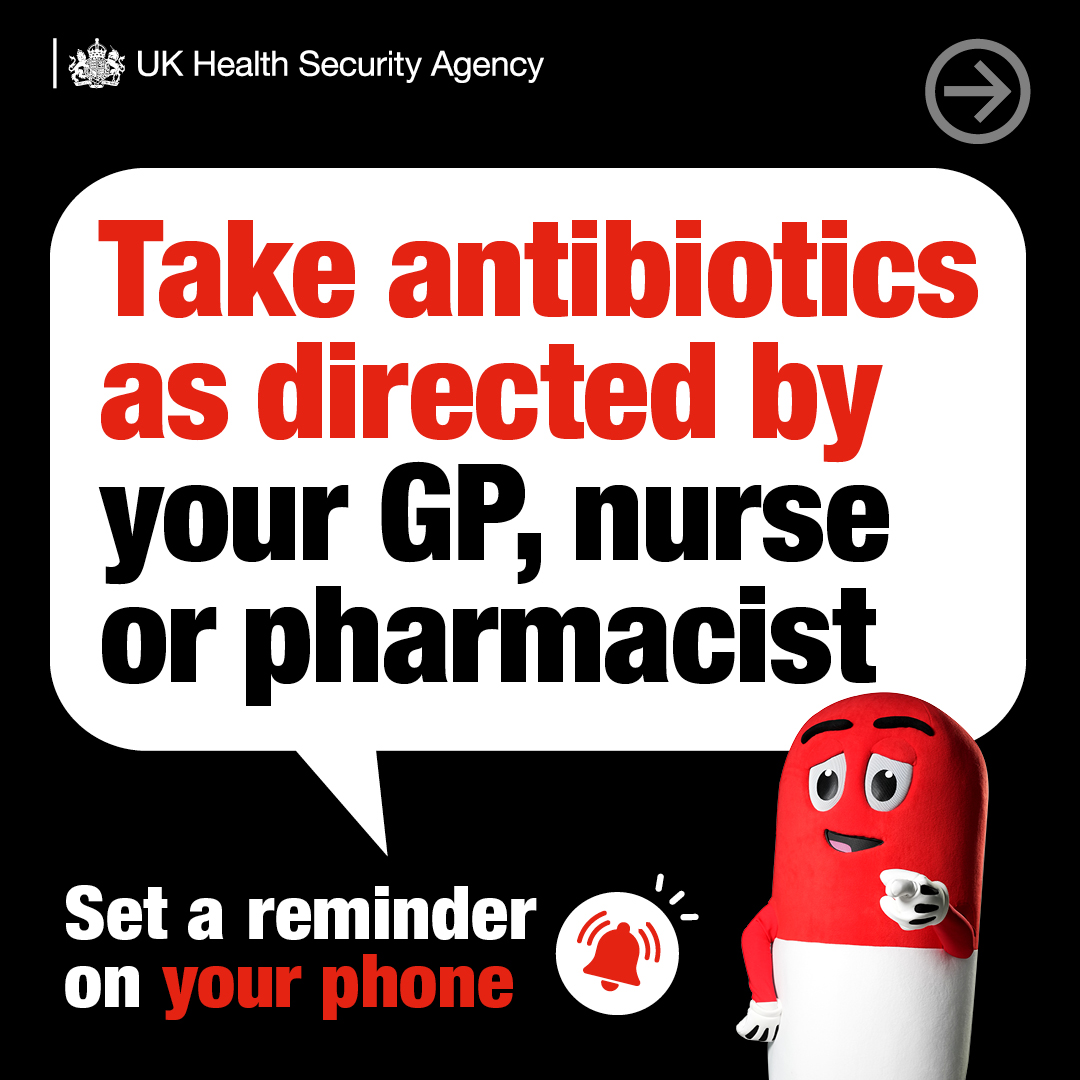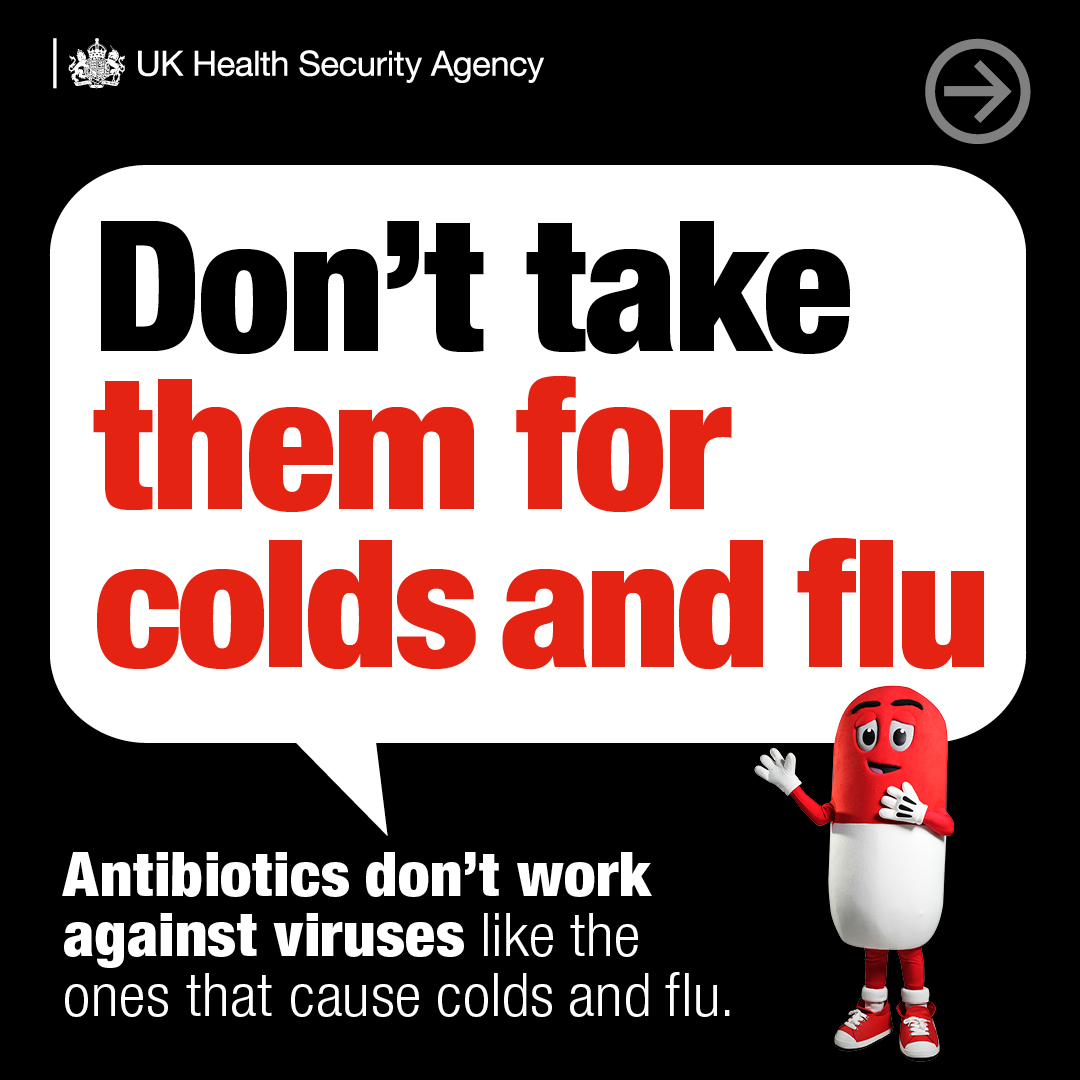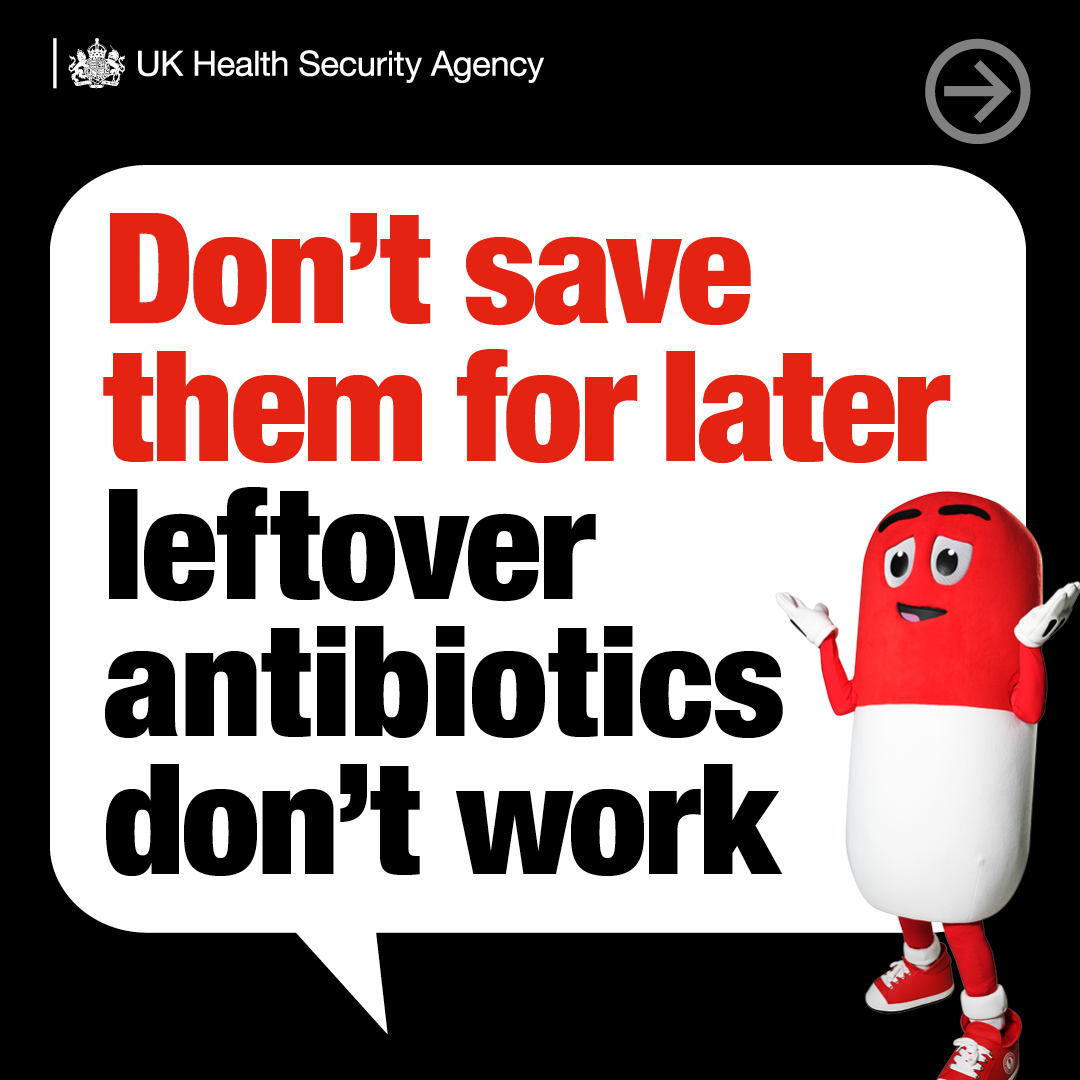 Your doctor may prescribe antibiotics for your child if they have a bacterial infection. Some types of infections, such as coughs, sore throats and flu, are caused by viruses. Antibiotics do not kill viruses, so doctors will only prescribe antibiotics when they think your child needs them.
Your doctor may prescribe antibiotics for your child if they have a bacterial infection. Some types of infections, such as coughs, sore throats and flu, are caused by viruses. Antibiotics do not kill viruses, so doctors will only prescribe antibiotics when they think your child needs them.
Most children can fight mild infections such as a cold or tonsillitis. It is now recommended that doctors do not prescribe antibiotics if they think the infection will get better on its own to avoid the risk of antimicrobial resistance.
Antimicrobial resistance (AMR) means that some bacteria can become 'resistant' to a common antibiotic and no longer be killed by it, making infections harder to treat. If your child is prescribed an antibiotic, it's important that they take this medicine as directed by the doctor so that it kills harmful bacteria and gets rid of, or prevents a bacterial infection.
 Antibiotics are used to treat or prevent some types of bacterial infection. They work by killing bacteria or preventing them from spreading. But they do not work for everything, for example, some common illnesses like sore throats, colds and ear infections can be caused by a virus.
Antibiotics are used to treat or prevent some types of bacterial infection. They work by killing bacteria or preventing them from spreading. But they do not work for everything, for example, some common illnesses like sore throats, colds and ear infections can be caused by a virus.
If your child is prescribed an antibiotic, it is important that they take this medicine. Your healthcare professional will work out the amount of medicine, called the dose, that your child needs to take and let you know how often to take the medicine.
This information will also be printed on the medicine label. It's important to follow the doctor's instructions about how much medicine to give your child or young person.
Most children can fight mild infections on their own, and some common illnesses, such as sore throats, colds, coughs and flu, are caused by viruses.
Antibiotics do not kill viruses, so it is now recommended that doctors do not prescribe antibiotics if they think the infection will get better on its own. Antibiotics can also cause side effects, so a doctor will avoid them unless it's necessary. Your doctor will consider the benefits and risks of the illness when deciding what treatment your child should have.
Antibiotics work best when given regularly. They are unlikely to cause any problems if you take an extra dose by mistake.
If you are concerned that you have forgotten to give several doses or have given your child too much, contact your doctor or local NHS services. Have the medicine or packaging with you if you telephone for advice.
Find more advice on what to do if you forget to give your child antibiotics, or give them too much on the individual medicine leaflets:
Medicines for Children Website
It is important that your child completes their course of antibiotics. This means that they must take the medicine for the number of days that the doctor has recommended, or until all the medication has been taken. If you stop giving an antibiotic too early, bacteria that are left may start to multiply again and cause another infection.
Bacteria that become resistant to a common antibiotic are no longer killed by it, and infections may become harder to treat. It's important to only use antibiotics when they are needed, and to avoid buying antibiotics over the internet or using old stockpiled antibiotics.
Vaccines can help prevent the spread of infections. Keeping your child up to date with childhood vaccines can mean fewer infections and a lower likelihood of needing to use antibiotics, which reduces the risk of antimicrobial resistance.
It's important to keep medicines away from young children in a safe place in your home. You can store medicines safely by:



You can contact the Healthy Child Service team by calling Just One Number on 0300 300 0123 or texting Parentline on 07520 631590. Our opening hours are 8am-6pm Monday-Friday (excluding bank holidays).
If your child is 11-24 years old, FYI Norfolk is an interactive NHS website just for them. It provides reliable and trustworthy advice and support on lots of health and wellbeing topics.
 The Lullaby Trust - Baby Check App - This app has simple checks that you can do if your baby is ill and helps you think about whether they need to see a doctor or health professional.
The Lullaby Trust - Baby Check App - This app has simple checks that you can do if your baby is ill and helps you think about whether they need to see a doctor or health professional.